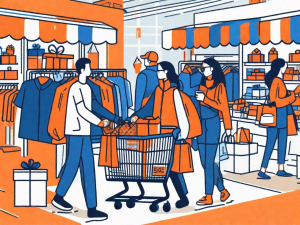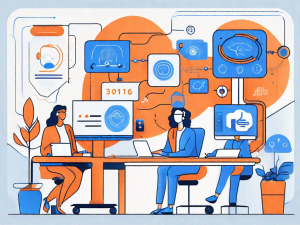 “I think you should have looked around. You would have gotten a better deal”
“I think you should have looked around. You would have gotten a better deal”
If you are a salesperson nothing is scarier than these words spoken to your customer by their spouse, colleagues or boss.
Buyer’s remorse is part and parcel of nearly every sale.
Common triggers include a customer realizing that the purchase was unnecessary, a feeling that they have been overcharged or awful after sales service. Regardless of the reason, buyer’s remorse is bad for your business.
A short term effect is that you will lose money in refunds and processing. But more importantly, customers with buyer’s remorse don’t become regulars.
And no business can be profitable in the long term without repeat customers.
Here are 7 ways you can stamp out buyer’s remorse
1. Qualify your buyers
Make sure you are selling to the right people. This seems like a “Doh” moment in hindsight but there are whole industries built around selling stuff that buyers don’t really want or need.
Don’t be that seller who prioritizes short term tire kickers and unsure customers over long term satisfied buyers.
2. Cut out the fine print
If you want to make your customers regret doing business with you then fine print, hidden costs and confusing terms of service will get your job done.
These tactics are great if you want uninformed and unsuitable customers. But these people, not knowing what they signed up for would be the first to be hit by the whiplash of buyer’s remorse.
3. Hammer the benefits home
This is a favorite tactic of direct response sales letters. They start off with description of the problem, talk about the solution, list out the benefits and then throw in testimonials from third parties for that crucial social proof.
And just before the call to action button, the benefits or the selling points are again mentioned.
This ensures that the customer is not confused by information overload and can connect with the truly important points in the offer.
4. Ask customers why they want to buy
Sometimes, customers are going to provide the best reasons for buying. As a seller, it’s your responsibility to help them explain the value that they will get out of the transaction.
Because they are genuine, these customer generated talking points are the best responses to the questions of the post purchase skeptics.
5. Remain accessible during and after the sale
This point is most important when the purchase involves a lot of money or when you ask people to start a subscription. If you sell online, providing live chat support is a great way to stay accessible to customers.
If you remain accessible after the purchase, it gives the customer confidence that in the event of any foul up, help would be at hand. This is the reason why people hesitate to buy high end gadgets or cars if the manufacturer does not have an authorized service center nearby.
6. Give customers bragging rights
When you go and buy fries the McDonald’s packaging informs you that the potatoes that make up the fries have been very carefully selected.
You can also learn a lot from Zappos’ marketing strategy. When you order a pair of shoes, they send you a flier stating how the minimalist shoes help you prevent a common runner’s problem.
These details have a “wow” factor and provide an additional reinforcement as to why the decision to buy was a good one.
7. Underpromise and overdeliver
Pleasant surprises are one of your strongest allies in the battle against buyer’s remorse.
Conversely, overhyped products always have a bad habit of leaving the customer feeling like a gullible fool.
This is the type who returns with the product and the bill, asking for their money back.
Your marketing should go easy on the hype. Don’t make promises you know you can’t deliver, keep it real and everyone will be satisfied.
What are your strategies for preventing buyer’s remorse?




